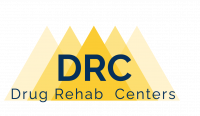Does Depression Go Away?

Depression is a mental illness that can affect anyone, regardless of their age, race, or gender. It is characterized by feelings of sadness, emptiness, and hopelessness that can last for weeks or months at a time. Some people may experience only a single episode of depression in their lifetime, while others may have multiple episodes. Depression can be very debilitating and often prevents people from living normal lives. In this blog post, we will discuss the question, “does depression go away?”
What Are Depressive Episodes?
Depressive episodes are characterized by a depressed mood that lasts for at least two weeks. This can be accompanied by other symptoms, such as loss of interest in activities, fatigue, changes in appetite, sleep disturbances, and feelings of worthlessness or guilt. Episodes of depression can be progressively worse and may last for months or even years. The impairment caused by an episode of depression can be significant, interfering with the individual’s ability to function at work or in relationships. In severe cases, people may experience thoughts of self-harm or suicide. Episodes of depression may end in remission (partial or total recovery) or may resolve into a chronic depressive state.
The cause of depressive episodes is not fully understood but is thought to involve a combination of genetic, psychological, and environmental factors. Treatment typically involves a combination of medication and psychotherapy. In severe cases, hospitalization may be necessary. With treatment, the majority of people with depression recover from their episodes. However, some people may experience chronic or recurrent episodes of depression throughout their lifetime.
If you think you or someone you know may be experiencing a depressive episode, it is important to seek professional help from drug rehab centers. A mental health professional can assess symptoms and make a diagnosis. They can also provide guidance on treatment options. Early intervention is often key to recovery from an episode of depression.
How Is Depression Treated?
Depression is a treatable illness. While there is no one-size-fits-all treatment for depression, there are many quick and effective treatments available. The key to successful treatment is finding the approach that works best for you. This may take some trial and error. Some people respond well to medication, while others find that counseling or therapy is more helpful.
For people with recurrent depression, a preventive treatment can be very important. It may involve taking medication on a long-term basis or making lifestyle changes to reduce your risk of relapse. Each person is different, so it’s important to work with your doctor to find the approach that works best for you. Here are some common treatments for depression:
Psychotherapy
Psychotherapy is a common treatment for depression. You work with a therapist to talk about your issues and learn how to cope. They are a trained mental health professional who can help you understand your thoughts and feelings.
There are different types of psychotherapy, but two of the most common are dialectical behavior therapy (DBT) and cognitive-behavioral therapy (CBT). You work with the therapist to set goals and expectations for both types. You also talk about what triggers your depression and any detrimental beliefs you have. The goal is to create positive beliefs and coping strategies.
You may not see results immediately, but if you stick with it, psychotherapy can be very helpful in managing depression.
Hospitalization
Sometimes, hospitalization becomes necessary when a person suffering from a depressive episode cannot care for themselves or poses a danger to themselves or others. Inpatient treatment in a hospital can provide a safe and structured environment while the individual receives medication and has their condition reviewed.
Hospitalization may also offer intensive individual and group therapy as well as support from other patients going through similar experiences. While hospitalization is not always the answer, it can be an important step in getting the necessary treatment for depression.
Lifestyle Changes
Here are some lifestyle changes that may help lessen the symptoms of depression:
- Regular therapy sessions: Talking to a therapist can help you understand and manage your depression.
- Self-care: Taking care of yourself emotionally and mentally is important. This includes things like getting enough sleep, spending time with supportive people, and doing activities you enjoy.
- Abstaining from alcohol and recreational drugs: Alcohol and drugs can make the problem worse. If you’re struggling with addiction, seek professional help.
- Fresh air and exercise: Getting outside for some fresh air and moderate exercise can improve your mood.
- Regular sleep: Getting enough sleep is crucial for managing depression. Make sure to establish a regular sleep schedule.
- Healthy diet: Eating a balanced diet is important for overall health, including mental health. Avoid processed foods and eat plenty of fruits, vegetables, and whole grains.
If you’re struggling with depression, talk to your doctor. They can help you create a treatment plan that’s right for you.
